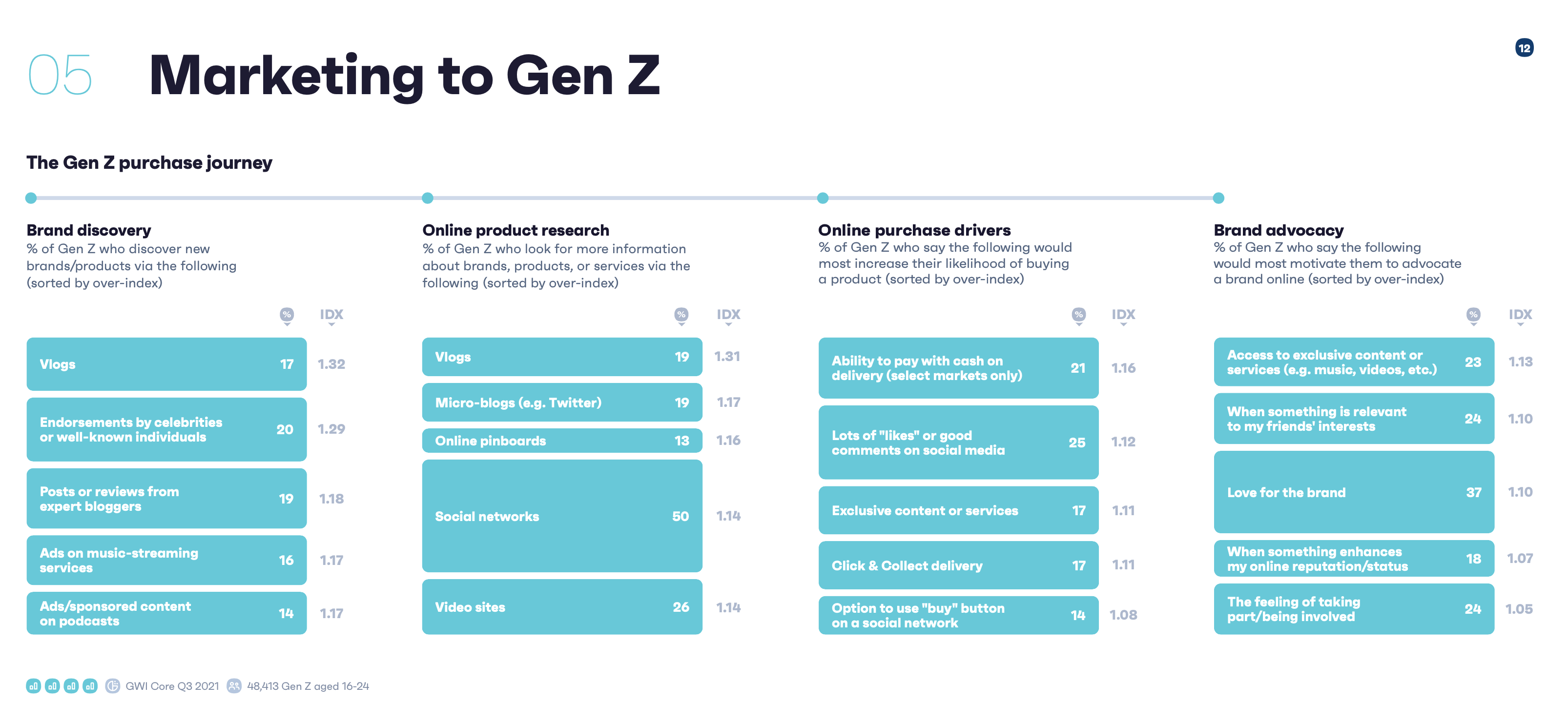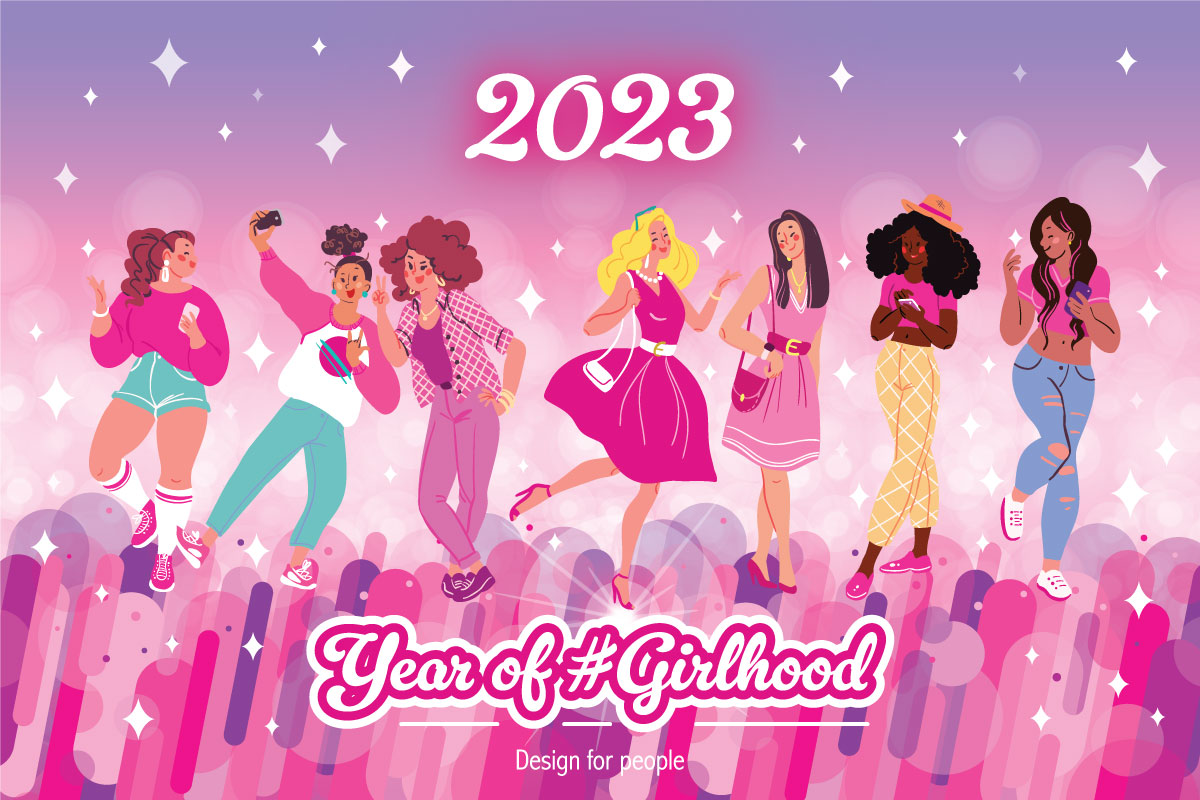Gen Z and The Desire for Authenticity
By Caroline Hunter
Gen Z is a generation that is fueled by change. We grew up in a rapidly evolving world – one where the interconnectedness achieved through various social media platforms continues to have an immense effect on the way teens and young adults navigate life. Now, enveloped in a world overflowing with new technologies, we can search for anything and talk to anyone at the click of a button. These various changes that continue to influence our everyday lives have morphed Gen Z into what we are now – and with the plasticity of the modern world, authenticity is perhaps the most desirable quality we are searching for. In our social media use, our conversations, in the media we consume, and what feels like a million ads we see scrolling through social feeds every day, we crave an authentic experience. The world has changed so quickly that it feels like we are always playing catch up, and we have to adapt just as fast.
The Gen Z Lifestyle
My generation grew up during the rise of the smartphone, a whole world that fits right in our hands – so, it’s no surprise that Gen Z is a generation enthralled by popular culture. Music, film, television, fashion, and activism are all things that fuel many Gen Z-er’s lives. With apps like TikTok, we have a direct connection to, and huge influence over, pop culture trends today. We are exposed to thousands of products, advertisements, and online personalities every day – creating pickier consumers and increasingly quicker trend cycles within this growing online world that Gen Z has cultivated.
Social media is truly at the forefront of the Gen Z lifestyle. There has been a shift from trusting bigger brands to instead placing our trust in smaller, more intimate companies and the personalities that showcase them. New brands have even begun documenting their journeys through one to three minute TikTok videos. The transparency between these brands and their consumers has produced significantly more trust with their audience – it makes us feel a part of the process itself.
With a rise in popularity of second-hand shopping and increased sustainable options, consumers are becoming more conscious about what they purchase. Gen Z has become quite picky – but for good reason. As we continue to live through the pandemic, and as climate concerns grow everyday, my generation is becoming increasingly aware of the impacts their purchases make. Many people in my life, including myself, have started prioritizing things like second hand shopping – not only is it more sustainable and affordable, but thrifted clothing tends to be more unique. We don’t want to feel lied to or misled; we want the things we buy to feel special and long-lasting.
Brand Neutrality is No Longer an Option
Gen Z is a generation where many of us have become increasingly aware of and proactive towards certain social causes in our modern world. With movements such as Black Lives Matter, #MeToo, and issues like climate change at the forefront of many of our adolescent lives, the drive for brands to be more sustainable and inclusive is strong. Companies like Ben & Jerry’s have become a favorite among Gen Z, not only for their product, but for their message. The commitment and transparency in Ben & Jerry’s social responsibility drives their success, and that success aligns with the notion that, “75% of Gen Z wants to leave the world a better place than they found it… [they] show the most loyalty to the brands that make a deliberate effort to champion equity, inclusion and sustainability.”
Pre-pandemic marketing strategies are a concept of the past, or at least they should be. While many traditional methods have stuck around, Gen Z-ers are now making big changes in media – and the way this media is being produced has begun to shift because of it. Most everyone’s lives have changed drastically over the past two years, but Gen Z has arguably experienced the most disruption to their daily lives. With many schools shifting to an online model and important milestones being celebrated virtually, the pandemic has forced us to adapt to this new world during a time where many of us are graduating high school or college and moving into the “real-world”. According to Forbes, Gen Z makes up over 40% of U.S. consumers today; understanding how to appeal to Gen Z is a big priority to brands right now. Our view of the world has shifted – the future is more unpredictable than ever and because of this community, it’s one of our biggest assets. Banding together to create a world we desire is incredibly important – and putting our trust in brands that have the same goal is crucial.
Forbes outlined five truths about Gen Z and their receptiveness to marketing today:
- Entertainment IS news to at least half of Gen-Z consumers.
- Gen-Z trust in larger institutions is on the decline.
- Brand neutrality on societal issues is NO LONGER an option.
- Gen-Z trains algorithms (not dogs) to get what they want in their feed.
- This is the Age of Transparency for Gen Z.
The cookie-cutter model of advertising is no longer cutting it. This is the age of scrolling – when a traditional ad comes up on one’s TikTok For You Page, it is often getting skipped with a quick scroll. However, when a trusted online personality, or micro-influencer, continually endorses a product or brand, their audience is more likely to become informed and interested in the endorsement.
The Influence of Gen Z
This generation not only has a prominent say in the market through their own purchasing power, but they also have a major influence on the purchasing habits of those around them such as their families and friends. Many Gen Z-ers are familiar with helping their parents navigate social media, or helping their grandparents navigate the internet as a whole. Gen Z seeks the truth and is more capable than ever in finding that information on their own – we don’t need advertisers to tell us what we want or need. It is through their transparency and authenticity that brands will find the most success. By investing into trusted online personalities and recognizing Gen Z’s internet literacy, the efforts to appeal to this generation will be more successful.
Much of the younger generation still lives with their parents, even if just part-time, however, many Gen Z-ers are still able to leverage their influence on family spending. “They are most likely to exercise their influence when it comes to family spending on food and beverages (77% report having a say in this), furniture (76%), household goods (73%), travel (66%) and dining out (63%).” Even though traditional methods of shopping may still appeal to the older generations, Gen Z still has a massive influence on what their parents or households may be purchasing – in ways such as pushing them to choose brands with a more transparent, sustainable mission while at the grocery store or online shopping.
Advertising Authentically
For a generation marked by consistent and rapid adaptations within an increasingly changing world, it’s no shock that there seems to be a large disconnect between us and other generations. Companies spend millions trying to sell to Gen Z consumers, but according to Adweek.com, “only 8% of the generation thinks brands actually understand them” – and the misunderstood majority includes myself and much of my community. With the rise of the influencer taking the advertising world by storm, it’s understandable that much of my generation has started to trust smaller internet personalities over their larger, corporate counterparts. Formulaic, inauthentic ads are what we grew up on; and now it’s real people, honesty, authenticity, and brand transparency that we desire. Individuality is a quality that many young people covet, and that extends to how we perceive the things advertised to us. Trend cycles have shifted from lasting years to lasting just weeks or months – so not only does my generation desire trendy clothing, music, or even decor, but we want to make it our own too. We are masters at taking trends and turning them into something timeless and long lasting, making us more aware of our purchasing power. We read ingredients, look into the methods in which products were produced, seek affordable options, and overall try to shift our purchasing habits towards more organic and ‘good’ brands.
With this emphasis on real-life experiences, personalized and value-based advertising is received best by Gen Z. As live-clicker states, “While Gen Z avoids ads more than any other generation, they are less likely to object to ads that are relevant to their needs and lifestyle. In this regard, they prefer native ads more than other generations.” Brands must become masters of technology that truly appeal to the majority of Gen Z. Most people have become accustomed to ignoring television commercial breaks and clearly stated ads on social media timelines – brands need to become more creative and personal in their approach to marketing, especially with the younger generation. We know what we want and what we need, we just need someone to convince us that a certain product or service is worth our time and support.
So, Where Does This Leave Us?
Well, for starters, we are all still figuring it out. The world is changing day by day and most of us are just trying to find our place. What I do know is that we want to leave the world a better place than how we found it – it’s a goal shared by countless other generations, but one that is arguably more important than ever. We can invest both our time and money into brands and people that will help support our goal in achieving a more inclusive, sustainable, and authentic world – one where everyone can feel seen.









